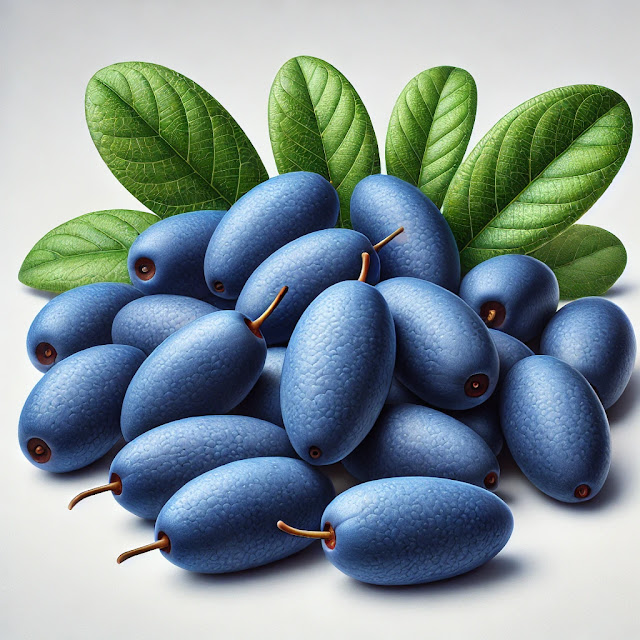Unveiling the Power of Pomegranate: Health Benefits, Recipes, and Cultural Significance
Overview:
Pomegranates, with their jewel-like seeds and deep red color, are one of nature’s most beautiful fruits. Known for their sweet yet tangy flavor, pomegranates are prized not only for their taste but also for their health benefits. The bright red seeds, known as arils, are packed with nutrients and antioxidants, making this fruit a superfood enjoyed around the world.
Calories and Key Nutrients (per 100g):
Pomegranates provide about 83 calories per 100g, making them a relatively low-calorie fruit. They are rich in Vitamin C, Vitamin K, and fiber. Pomegranates also contain powerful antioxidants like punicalagins and anthocyanins, which help protect the body from oxidative stress. Compared to other fruits like blueberries (57 calories per 100g) or apples (52 calories per 100g), pomegranates offer a higher amount of antioxidants, making them a potent addition to a healthy diet.
Health Benefits:
Pomegranates are packed with health benefits due to their high levels of antioxidants. These compounds help reduce inflammation and protect against heart disease by lowering cholesterol levels and blood pressure. Pomegranates are also known to improve blood circulation and may even help prevent certain cancers, including prostate and breast cancer, due to the ellagic acid and punicalagin content. Additionally, their fiber content supports digestive health by promoting regular bowel movements.
Proper Consumption Methods:
Pomegranates can be enjoyed in many ways. The easiest way is to cut the pomegranate open and remove the seeds, which can be eaten on their own as a snack or added to salads and yogurt. Pomegranate juice is another popular way to consume the fruit, providing a refreshing and nutrient-rich drink. You can also sprinkle pomegranate seeds over desserts, such as cakes or ice cream, to add a burst of flavor and color.
Delicious Ways to Enjoy (Recipe):
For a simple and tasty recipe, try a Pomegranate Quinoa Salad. Mix cooked quinoa with pomegranate seeds, fresh mint, chopped cucumber, and a squeeze of lemon juice. Drizzle with olive oil and sprinkle with salt and pepper for a light and refreshing dish. Alternatively, you can make a pomegranate glaze to drizzle over roasted vegetables or grilled meats, adding a sweet and tangy flavor.
Consumption Warnings:
While pomegranates are generally safe and healthy to consume, people who are on blood-thinning medication should consult a doctor before increasing their pomegranate intake, as the fruit is rich in Vitamin K, which can affect blood clotting. Additionally, pomegranate juice is high in natural sugars, so individuals with diabetes should monitor their consumption to avoid spikes in blood sugar.
Comparison with Other Fruits:
Compared to fruits like strawberries or grapes, pomegranates are higher in antioxidants and fiber. Strawberries provide more Vitamin C, while pomegranates excel in their content of unique compounds like punicalagins, which are not found in most other fruits. Both grapes and pomegranates offer benefits for heart health, but pomegranates stand out for their ability to reduce inflammation and improve blood flow more effectively.
Who Should Eat and Who Should Avoid:
Pomegranates are excellent for athletes or individuals looking to improve their circulatory health. The fruit’s high levels of antioxidants make it ideal for people aiming to reduce inflammation and support heart health. However, individuals with certain health conditions, such as those on anticoagulant medications, should be cautious about over-consuming pomegranates due to their potential to interfere with blood clotting.
Fun Facts:
Did you know that pomegranates have been cultivated for over 4,000 years and are mentioned in ancient texts, including the Bible and Greek mythology? The fruit was considered a symbol of fertility and abundance in many cultures, and in some traditions, it was believed that Hades gave Persephone a pomegranate to keep her in the underworld.
Pomegranate in Different Cultures:
In Persian cuisine, pomegranates are a key ingredient in the famous dish Fesenjan, a rich stew made with ground walnuts and pomegranate molasses. In India, pomegranate seeds, or anar, are often used in salads, chutneys, and raita. In the Middle East, pomegranate molasses is a common ingredient in dips and sauces, adding a sweet and sour note to many dishes.
Research Findings on Pomegranates:
Recent studies have highlighted the potential of pomegranates in fighting chronic diseases. Research suggests that the antioxidants in pomegranates may help slow the progression of Alzheimer’s disease and improve memory. Additionally, studies have shown that regular consumption of pomegranate juice can lower blood pressure and reduce the risk of heart disease by improving the elasticity of blood vessels.
Additional Tips:
When choosing a pomegranate, look for fruits that feel heavy for their size, as this indicates they are full of juice. If you're not sure how to deseed a pomegranate, simply cut it in half and tap the back of the fruit with a spoon over a bowl to release the seeds. You can store the seeds in the refrigerator for up to a week, or freeze them for longer-term storage.











Comments
Post a Comment